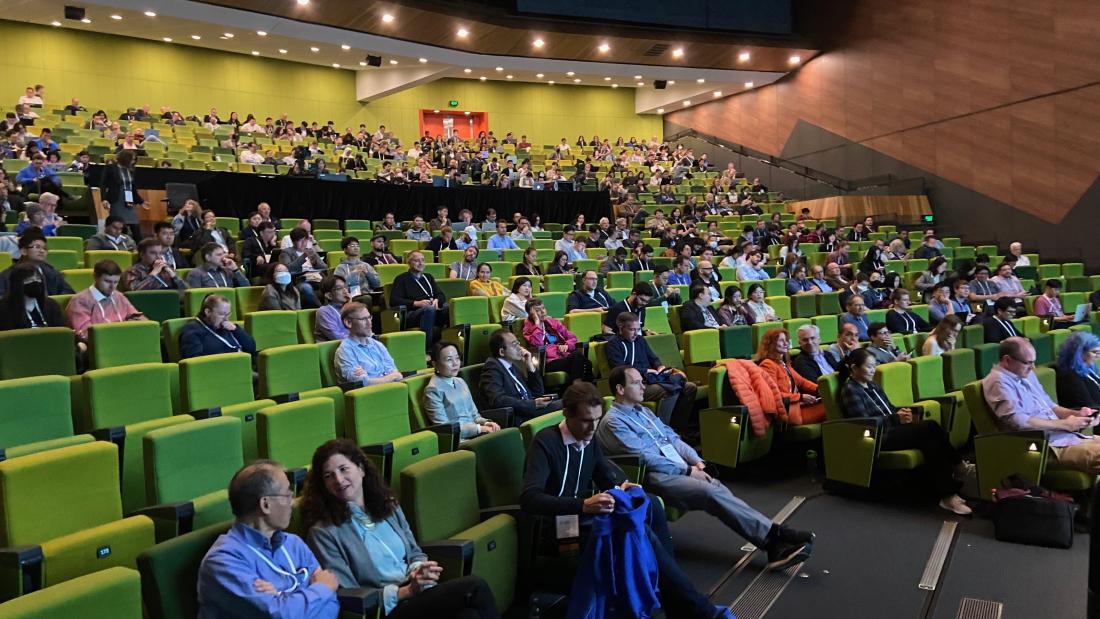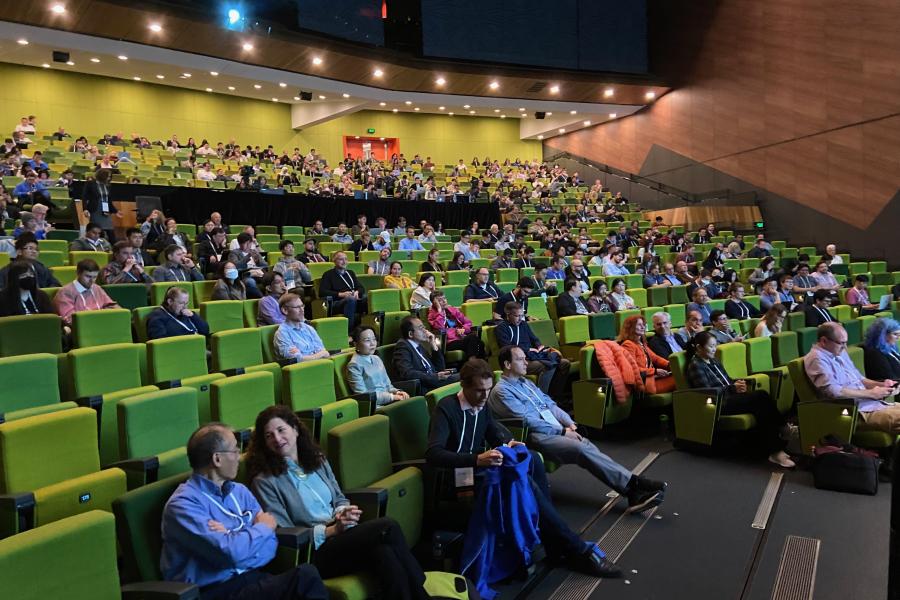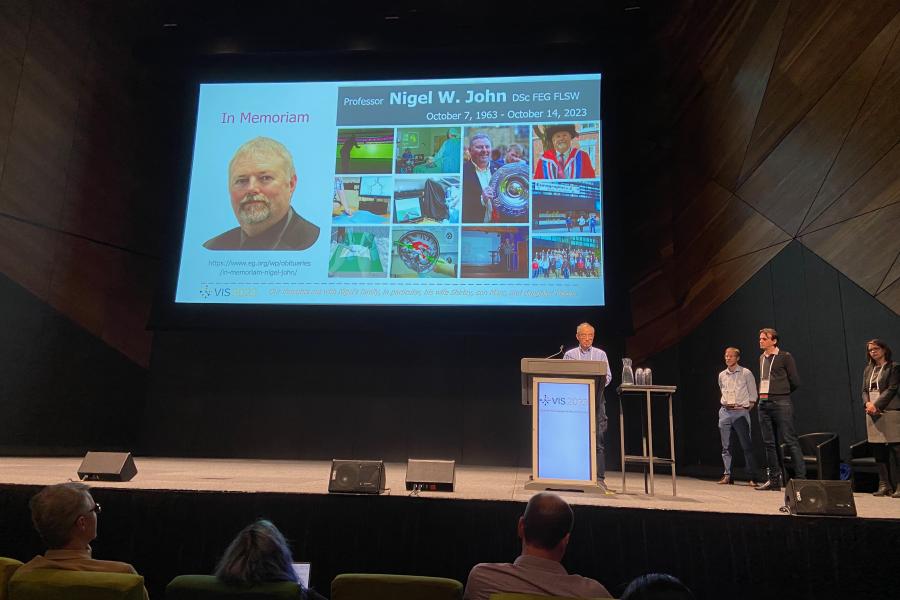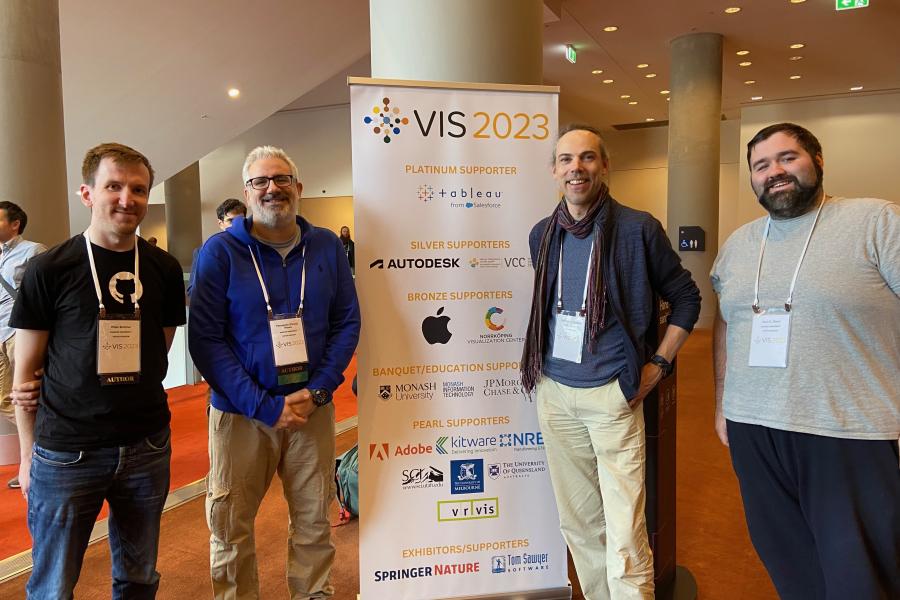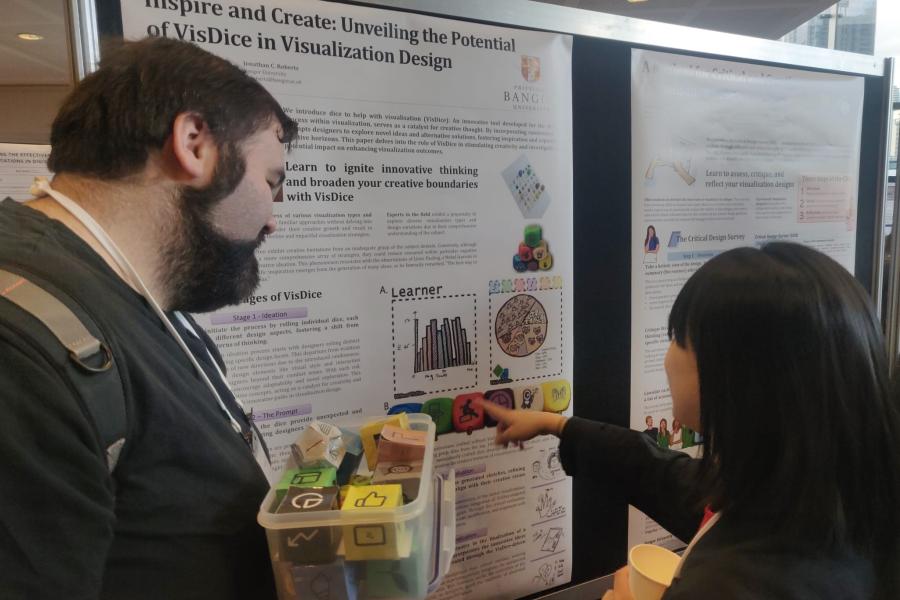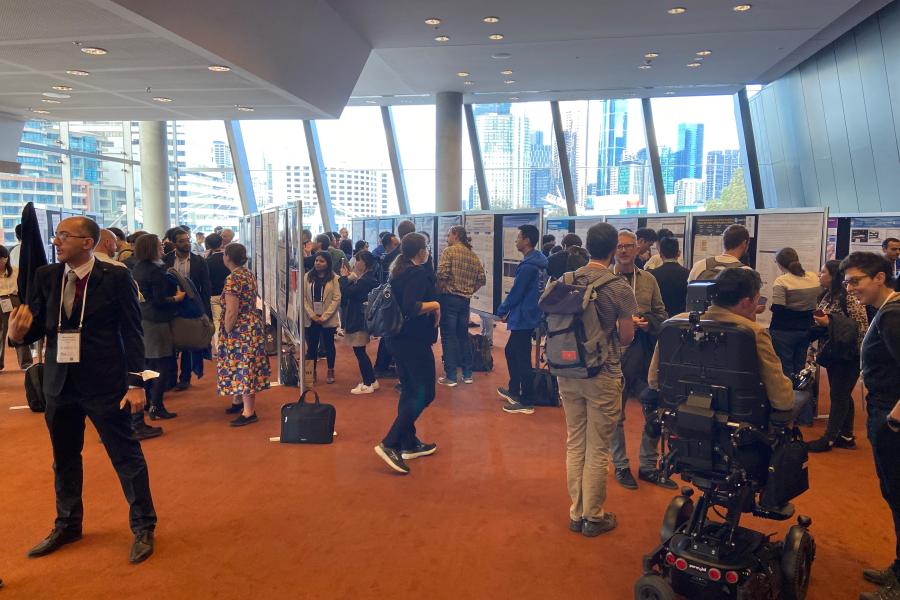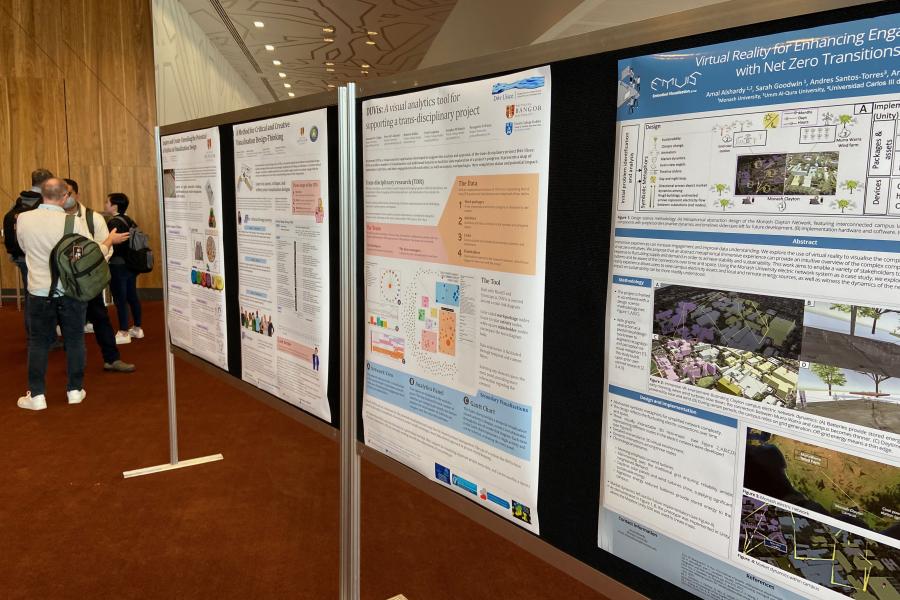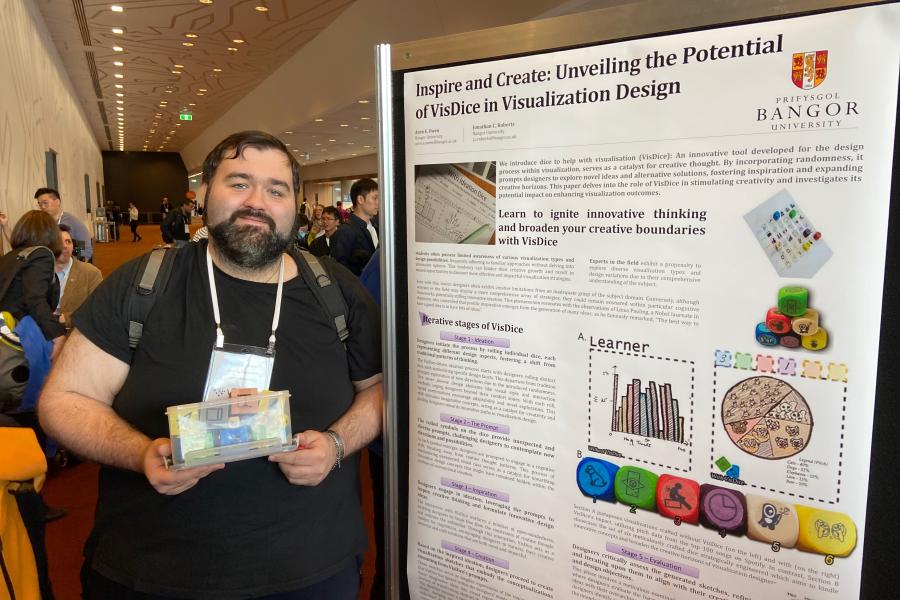IEEE VIS is the largest annual conference on data visualisation. It is a conference that is organised by volunteers representing the IEEE (Institute of Electronics and Electrical Engineers). This year, it was held in the southern hemisphere for the very first time, in Melbourne Australia. It attracted attendees from around the world. The 2023 edition of VIS (the Visualization and Visual Analytics Conference) ran from October 21st to 28th October 2023.
Melbourne felt like home; one day it rained, the next day was hot and sunny, and attendees and the locals were warm and welcoming. I had brilliant research conversations with many attendees. It was one of the best Visualisation conferences that I had attended.
Four academics and researchers from the School of Computer Science and Engineering attended the conference. Aron Owen, a PhD student studying visualisation design; Dr Peter Butcher (lecturer in Human Computer Interaction), Dr Panagiotis Ritsos (Senior Lecturer in Visualisation) and Professor Jonathan Roberts (Professor in Visualisation).
Professor Roberts went on to say,
“We were involved in many activities, we published three journal papers, four poster papers, co-chaired the short papers stream, helped run a workshop on Education and Visualisation, and were involved in the doctoral colloquium. It was a busy and exciting conference. We were all moved by the lovely remembrance presentation, at the start of the conference, by Prof Min Chen, of our colleague Professor Nigel John, who passed away, and was a previous professor at Bangor University”.
Panos and Pete presented two journal papers: “Wizualization: A "Hard Magic" Visualization System for Immersive and Ubiquitous Analytics” and “The Reality of the Situation: A Survey of Situated Analytics.” Jonathan presented his journal paper titled “Challenges and Opportunities in Data Visualization Education: A Call to Action” and was joint programme chair for the Short Papers programme, and the workshop on Education and Visualisation (EduVis).
Aron was privileged to be invited to participate in the doctoral colloquium.
In addition, the group presented four poster presentations and two workshop papers:
- Inspire and Create: Unveiling the Potential of VisDice in Visualization Design
- Less is more: Focused Design and Problem Framing in Visualisation – Developing the ColloCaid Collocation Editor
- RAMPVIS: Answering the Challenges of Building Visualization Capabilities for Large-scale Emergency Responses
- DUVis: A visual analytics tool for supporting trans-disciplinary projects
- A method for Critical and Creative Visualisation Design-Thinking
- Creating storytelling visualizations for the Covid-19 pandemic using Feature-Action Design Patterns
The doctoral colloquium was great; I was able to present my research to international researchers. The poster presentation was my highlight. I had tens of people come up to me and ask me about my research. The interaction with people at the poster was brilliant.” Aron Owen, PhD Student studying Design Visualisation

